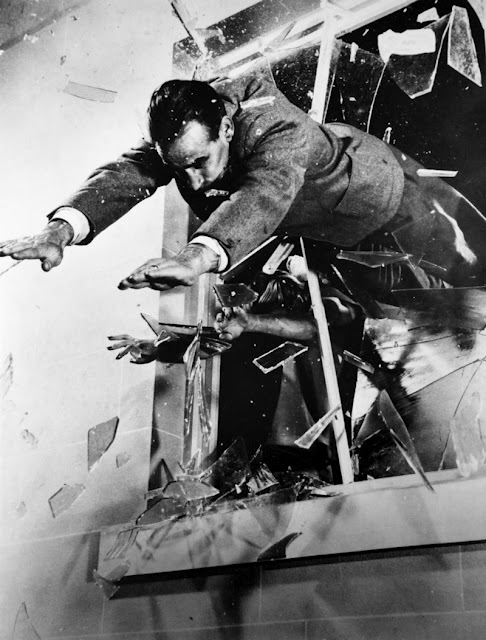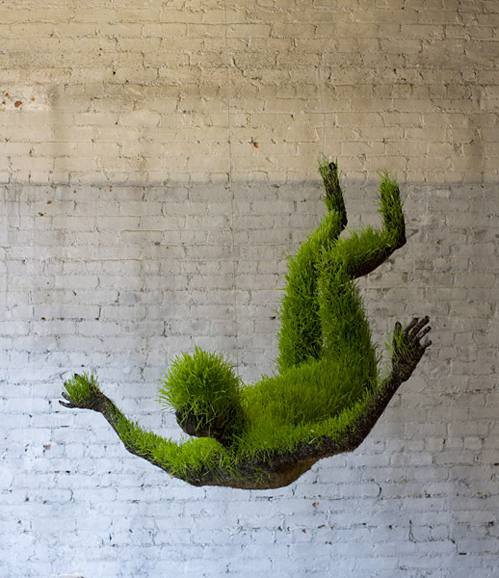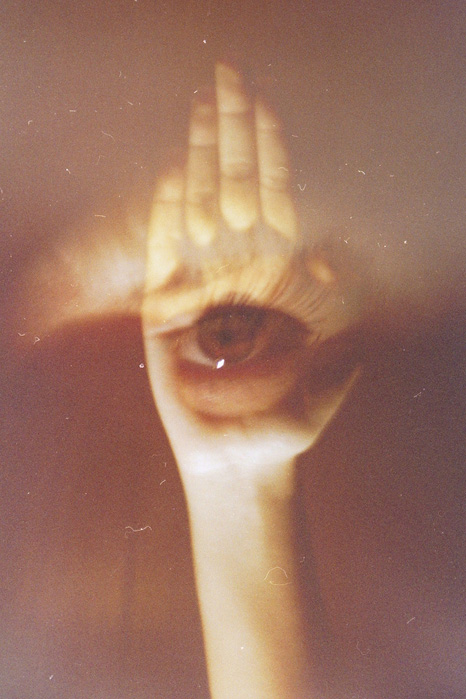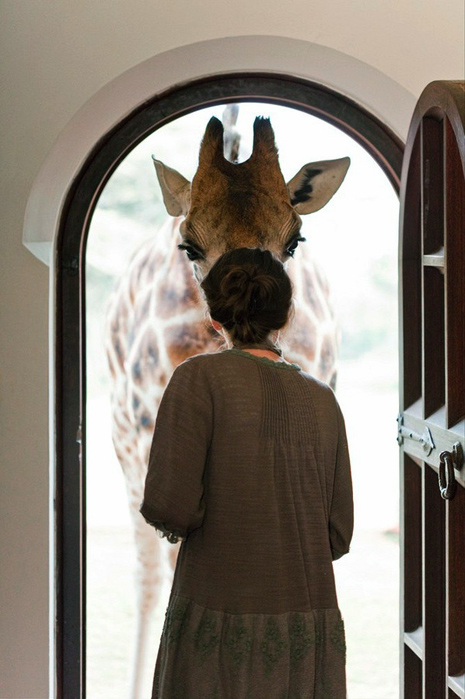Notes from a talk by Michael Stone at Centre of Gravity on July 15, 2012 on day 7 of a 12-day intensive.
Self Liberation
During sitting meditation, when you’re sitting with your thoughts long enough, they begin to empty themselves out. In Tibetan Buddhism there’s a phrase called “self liberation.” Thoughts liberate themselves. I remember a moment with a Tibetan teacher at a retreat where we practiced in a room with a glass wall that looked out onto the street. While we waited in the room, he went outside and put a five dollar bill out on the street. He came back in, we closed our eyes, and then after a few minutes we opened our eyes. The five dollar bill was gone. This is “self liberation.” The thoughts – they were never really our thoughts, we were never holding onto them in the first place, there’s nothing to hold onto. They don’t have the substantiality we think they have.
In the Satipatthana Sutta the Buddha says that if we give attention to patterns of inhaling and exhaling, we loosen up, there is less clinging to experience. And then we expand our range to include sensations and feelings. We can watch them come and go, without having to be pressed up against the windshield of our lives. And eventually we may be able to do this with thoughts.
Practical
One of the nice things about this teaching is that it’s not a belief system. It’s practical, accessible and verifiable. Every statement is followed by an example which offers a way to practice it. The core Buddhist teachings about the six sense spheres and the nature of consciousness – you can verify it in your own meditation practice. Einstein would perform a lot of solitary mind experiments, he would ask himself questions the way the Buddha asked questions like: what is the self? And it was while performing these experiments that many of his great discoveries occurred. So when the Buddha asked himself: what is the self, he arrived at the five skandhas. I’m not big on the skandhas but I think you’ll find that if you try to come up with additional categories, everything seems to fit into those five.
Sabba Sutta
After the Satipatthana Sutta, the Buddha taught the Sabba Sutta. It’s the shortest of all the suttas.
“Monks, I will teach you the All. Listen and pay close attention. I will speak.”
“As you say,” the monks responded.
The Buddha said, “What is the All? Simply the eye and forms, ear and sounds, nose and aromas, tongue and flavors, body and tactile sensations, intellect and ideas. This, monks, is called the All. Anyone who would say, ‘Repudiating this All, I will describe another,’ if questioned on what exactly might be the grounds for his statement, would be unable to explain, and furthermore, would be put to grief. Why? Because it lies beyond range.”
Thoughts Without a Thinker
If someone comes to you with spiritual teachings that lie beyond the six sense doors, and they have a shaved head, and they’re a man, best be careful. You can hear the Buddha’s earthiness in this teaching. And see how typical this was for his approach. What does it mean to taste food? I tried this out on my eight-year old son Arlyn at lunch hour today but he wasn’t impressed. What does it mean to taste food? You need a tongue, you need saliva or moisture, you need food, and a knowing around what taste is. Oh, that’s taste. If you take away any one of these conditions there is no taste. If there is no food there is no taste. If there is no tongue, there is no taste. It only arrives in conditions. There’s nothing eternally tasty that’s waiting behind these conditions.
A student asked Shunryu Suzuki: If a tree falls in a forest, and no one hears it, has it fallen? He replied, “It doesn’t matter.”
In meditation you can see that thoughts come and go, but you don’t create them. You contribute to the thought field, call it brain gas. And while sitting in meditation you can watch the gas come and blow away. But you are not the thinker. You can have thoughts without the thinker. Similarly, the sense organs can have sense consciousness, can come into contact with a colour, or a smell, but there’s nothing behind that colour or smell. Though the mind has a tendency to make patterns, to make the colour and smell into something that happens “to me.” But consciousness is conditioned, it occurs in conditions, not to some eternal, everlasting “me” that lies outside of conditions. This is the big difference between what the Buddha taught, and previous Indian philosophies. The “me” that the mind tries to impose that is “behind experience,” or that the experience is supposedly happening to, is just another mental formation.
There is no personality behind your personality that is going to gain something. We might think that behind our senses there’s someone whose yoga practice is getting better, or who is becoming more spiritual, gaining spiritual air miles. I listen to this dharma talk and it’s like getting my spiritual air miles card swiped. Every month I get an email from God telling me how many spiritual air miles I have.
The sense organs are often called sense doors. Imagine a house with six windows. There’s an ear window, a nose window, a tongue window… In one second you run 64 times around the house. In mindfulness practice you slow this process down, and try to stay at a single window, you stay with your experience of taste, for example. And then you understand that you can have an experience of taste before it becomes your taste. You can have an experience of pain in the knee before it becomes your pain in your knee.
The only way not to take things so personally is to know yourself. To open to the feeling that the sensations flowing through us is the whole world manifesting in this moment. We become more generous and accepting if we don’t recreate/re-form experience so that it fits into some idea of myself. The Heart Sutra is saying: it’s not your fault. Give yourself a break. Even when things are hard there can be some ease.
The Buddha didn’t say there is no self. The Buddha didn’t say there is a self. The Buddha was concerned with suffering. And why? Because he was suffering himself. I am suffering. And I have worked out the cause of suffering. What is the major cause of suffering? It’s the self, the sense that all this, everything in the “outside” world, has been arranged so that I can experience it. How do you see through these mental formations and delusions? You see the all.
The Buddha insists: there is no consciousness without relationship. And the Heart Sutra says: all there is, is relationship. So forget about yourself and love. Love: the willingness to risk taking care of another in face of impermanence.
When I had a bad break up a few years back I swore I’d never getting involved in relationships again. I just wanted to go to the monastery. And then you get to the monastery and find other people there. I have a friend who told me, ‘I was never angry until I got to a monastery.’
Dukkha
In Buddhism, dukkha, or suffering, doesn’t just mean anguish. It means the restlessness of experience. The way experience generates trouble for us. Dukkha is restlessness. Sometimes it’s mild, sometimes terrible. Suffering is also not knowing how to nourish ourselves. We can go for years having the wrong job, being in the wrong relationship, living in the wrong city. And we want to protect the wrongness.
Domestic Life
Avalokiteshvara is the one who hears the cries of the world. He becomes a she when she reaches China. In the statue we used to have on the altar at the Centre of Gravity she holds a vase as she stands on an ocean of samsara, which I translate as “domestic life.” Her alignment is off balance she’s never standing straight up, she’s surfing. In her hand is a jar, a vase. She’s crying and her tears are flowing into the vase. She’s taking all her tears, and your tears too, and pouring them upside down to create the sadness of our oceans. Our sadness has created these oceans. Or is it our oceans that are pouring back into us when we cry?
Bluebird by Charles Bukowski
there’s a bluebird in my heart that
wants to get out
but I’m too tough for him,
I say, stay in there, I’m not going
to let anybody see
you.
there’s a bluebird in my heart that
wants to get out
but I pour whiskey on him and inhale
cigarette smoke
and the whores and the bartenders
and the grocery clerks
never know that
he’s
in there.
there’s a bluebird in my heart that
wants to get out
but I’m too tough for him,
I say,
stay down, do you want to mess
me up?
you want to screw up the
works?
you want to blow my book sales in
Europe?
there’s a bluebird in my heart that
wants to get out
but I’m too clever, I only let him out
at night sometimes
when everybody’s asleep.
I say, I know that you’re there,
so don’t be
sad.
then I put him back,
but he’s singing a little
in there, I haven’t quite let him
die
and we sleep together like
that
with our
secret pact
and it’s nice enough to
make a man
weep, but I don’t
weep, do
you?
There have been such incredible knowledge jumps in science and technology, and yet existentially we remain so poor. How to alleviate pain? We don’t know how to work with unsatisfactoriness. We can medicate pain, but as people who are going to care for our parents who are getting older too quickly, or our children who are not getting old quickly enough, we need to know how to serve in a way that is transformative for us and for others. How to be in your life? For all his suffering Bukowski was in his life. He could admit there was a bird in his heart. Some of us won’t admit it.
Burn Out
There are three kinds of burnout that afflict those who serve.
1.Pathological altruism comes from reading too many books about saints. You forget about yourself and save people out of altruism. Most therapists don’t burn out because they have too many clients, they suffer from bad theory. They’re trying to help people (the relationship is hierarchical). Have your tried this with your parents? Women in particular are more culturally inclined to give themselves to others. And people who had to be parents for their parents. You become the confidante, and then later on it becomes hard to take care of yourself because you’re always trying to look after someone else. In nursing this is called an edge state. It comes out of a core belief that you can save everyone. That you are recognized, that your identity, the person who you really are, comes only when you’re helping others. That you are only OK when you are helping others.
On a recent Oprah show they had large families come on – seven, eight, nine, ten kids in a family. Oprah asked one couple: how do you manage? And the woman replied, “We put ourselves first as a couple.” It’s like on the airplane in case of emergency, you have to put on your own oxygen mask first, before you help others.
2. Vital exhaustion burn out. When a caregiver is unable to create proper boundaries between him/herself and the institution they’re working for. Moral outrage arises when your values and the values of your institution don’t sync up.
3. Vicarious trauma or compassion in drag. This is when you take on someone else’s suffering as your own. For example: chaplains in the military. They hear so many terrible stories that eventually they can suffer another’s person’s suffering. The person in conflict who is traumatized most deeply is not the victim or perpetrator, but the witness. This is tertiary trauma.
Self care is also part of your job as an activist. You are also part of the fabric of the universe. In response to being overwhelmed there are three usual outlets: moral outrage, avoidance through substance abuse and numbness (elective numbness). Wanting to be ignorant. You don’t need a drug addiction to be numb.
When I studied as a psychotherapist my excellent mentor taught me how to use the body as a tool. When you’re with a client you might find yourself getting into a mood you don’t usually have. Perhaps you’re starting to feel spaced out, and realize you haven’t been listening, and then you realize they’re not really talking about anything, they’re just wandering in circles with their words. You can use your disassociation to identify with their disassociation. If someone doesn’t want to talk about trauma a usual unconscious tactic is to become sleepy, so you might start feeling sleepy. Why am I so tired all of a sudden? And then as a therapist you might ask: are you getting sleepy because I am? And with that question you come back to the present moment, together.




